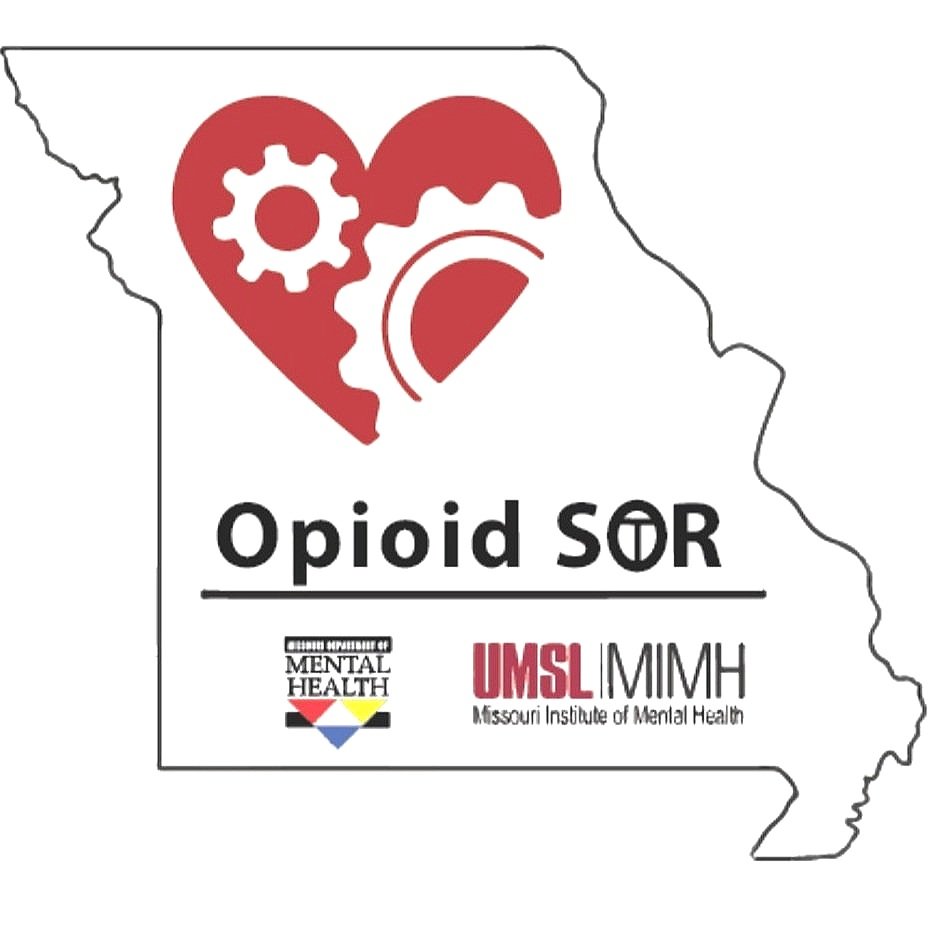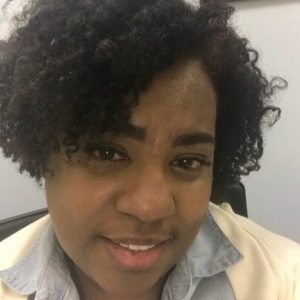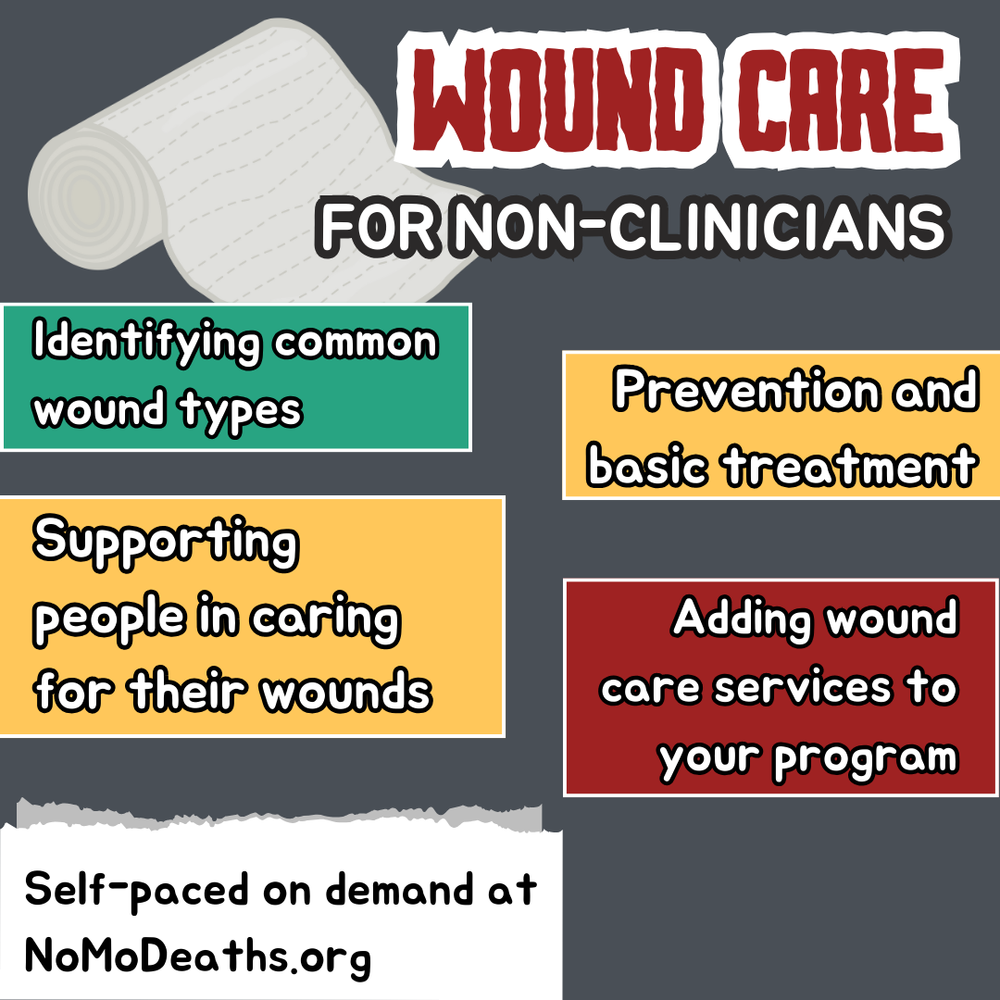
Overdose Prevention and Community Health Training
Our Overdose Prevention and Community Health Focused Consultants, part of our State Opioid Response, NORTH*, and ENACT grants are able to provide training and education to a variety of organizations. These consultants present trainings on overdose education and naloxone distribution, community engagement and outreach, stimulant overamping response, and health-based approaches to best meet people where they are at. If you are interested in training for your organization, please e-mail nomodeaths@mimh.edu.
Confluence
Confluence HRKC is an overdose prevention and community health collective that serves people who use drugs and those who love them in the Kansas City, MO area. They have been a subcontracted partner with UMSL-MIMH for two years. Through our partnership, Confluence has been able to increase their outreach efforts by purchasing a vehicle and distributing over 2500 doses of naloxone and thousands of fentanyl test strips in their area.
Audrey Collins

Audrey Collins is a Peer Recovery Specialist, and health coach. Audrey’s style of training is to present fact and faith based presentations with tangible experiences with the opioid crisis/epidemic. Audrey aims to provide direct, yet personable training with a directed emphasis on the earnestness of educating and connecting an audience with information and resources to assist others and save lives.
Pamela Paul

In addition to being a pastor, Pam is also a certified life coach, certified peer specialist, Adult & Youth Mental Health First Aid Certified, Certified Wellness Champion, as well as being an expert consultant on the SOR grant. Pastor Pamela is a charismatic trainer who conveys information in a way that calls her audiences to action. Pastor Pamela is a peer with lived experience that provides overdose education and stigma reduction with empathetic and engaging presentations across Missouri.

Wound Care Training for Non-Clinicians
In a world where many individuals do not have adequate access to medical care, basic wound care services and skills can be a great asset for organizations providing other services to the community. This multi-part, self-paced course introduces non-clinicians to the basics of identifying common skin and soft tissue infections, methods for prevention of wounds and care for existing wounds, strategies for supporting an individual in caring for their own wounds, and ways to implement wound care services within your program. In addition to the self-paced course, training attendees can register for regularly scheduled office hours to discuss wound care practices further and ask questions of experience practitioners.
Office Hours & Resources
After viewing the trainings, if you have further questions about wound care or want to seek additional guidance from our trainers, register for office hours below. Note: While recommended, you don’t have to view all three in their entirety to come to office hours.
For more training on overdose prevention and community health, visit our training page!
Wound Care Fundamentals
Learn about the basics of wounds, how you can support the body’s healing process, common wound complications, as well as wound prevention.
Wound Types
Learn about common types of wounds and skin infections you may encounter in the field, understand when a wound needs medical attention, and learn strategies for prevention and care.
Strategies for Community Workers and Organization to Support People Who Are Caring for Wounds
Identify strategies to increase confidence for people who are self-managing their own wounds, and explore practical ways that you or your organization can expand your wound care knowledge / offerings. This section has an accompanying worksheet and additional Missouri wound-care resources.
*Disclaimer: The content in this course is intended to offer strategies to meet people where they are at with their substance use. While some of our instructors have medical licenses, this training is for education purposes and is not direct medical advice. People who use drugs may be hesitant to access medical services because of experiences with stigma, mistreatment, legal concerns or logistical barriers. Regardless of their reasons, expert healthcare is preferred in most wound care circumstances to avoid significant downstream harms related to untreated wounds. In using a community health-based approach, this training is meant as advice for people who are unwilling to engage with the healthcare system, acknowledging that it is less optimal but better than no care at all.*
